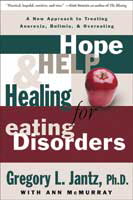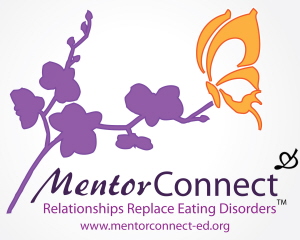Friday, September 30, 2011
Eating Disorder Walk, Expo on Sunday
Source: www.nbcnewyork.com
To promote eating eating disorder awareness, the National Eating Disorders Association will host its third annual walk and expo on Sunday.
According to the National Association of Anorexia Nervosa and Associated Disorders, up to 24 million Americans have an eating disorder, including bulimia nervosa, anorexia nervosa and binge-eating disorder.
...Continue reading here.
**************************************************
What are ways you can become involved in promoting eating disorder awareness today?
RSVP Now for MentorCONNECT's* "Life Saving Eating Disorder Research" with Walter Kaye, MD
Date: Wed, October 12th, 2011
Event: MentorCONNECT Teleconference
Topic: "Life Saving Eating Disorder Research"
Open to: all - general audience
Cost: free*
Presenter: Walter Kaye, MD
Time: 8-9:15pm central time
RSVP NOW
Event: MentorCONNECT Teleconference
Topic: "Life Saving Eating Disorder Research"
Open to: all - general audience
Cost: free*
Presenter: Walter Kaye, MD
Time: 8-9:15pm central time
RSVP NOW
Event Description: Dr. Walter Kaye is the country's leading researcher on the neurobiology of eating disorders. He has made many contributions to the field with his primary focus on studying the relationship between the brain and behavior and determining how we can better understand the symptoms of eating disorders. Dr. Kaye has focused his extensive career on developing innovative research practices to bring help, hope, and healing to recovering persons and their loved ones. In this teleconference, Dr. Kaye will review fascinating findings from his research on anorexia, bulimia, and other eating disorders. He will highlight information that will facilitate changing our approach to how recovering people view their disease and the positive traits that are too often viewed only in a negative light. If you are a recovering person and have ever caught yourself wondering, "Why am I the way that I am?" or if you are a loved one of someone who is recovering and you have ever struggled to understand why they can't "just eat more" and other such mysteries of the recovery process, then this teleconference is tailor-made for you!
PRESENTER BIO: Walter H. Kaye, M.D. is a Professor of Psychiatry at the University of California San Diego and Director of the Eating Disorder Research and Treatment Program. Dr. Kaye attended Ohio State Medical School, trained in neurology at the University of Southern California, and trained in psychiatry at the University of California, Los Angeles. Dr. Kaye was then a fellow and research physician at the National Institute of Mental Health for 7 years where he conducted research on appetite regulation, behavior, and treatment for disorders. Dr. Kaye was on the faculty of the University of Pittsburgh for 20 years until joining UCSD. His current research is focused on exploring the relationship between brain and behavior using brain imaging and investigating new treatments in anorexia and bulimia nervosa. He is also the principal investigator for an international, multi site collaboration on the genetics of anorexia and bulimia nervosa. Dr. Kaye has an international reputation in the field of eating disorders and is the author of more than 250 articles and publications.
FOR MORE INFORMATION ABOUT DR. KAYE & HIS WORK: http://eatingdisorders.ucsd.
Thursday, September 29, 2011
Making the Connection Between Trauma and Resulting Eating Disorders
by Dr. Kim Dennis, Medical Director of Timberline Knolls Residential Treatment Center, as published on Health Blog on DailyStrength.org
September 27, 2011
Trauma and traumatic experiences are nothing new to the human condition. Whether a child is sexually violated early in life, or an adult witnesses a horrific event during combat, such trauma can and often does have profound and long-term consequences.
September 27, 2011
Trauma and traumatic experiences are nothing new to the human condition. Whether a child is sexually violated early in life, or an adult witnesses a horrific event during combat, such trauma can and often does have profound and long-term consequences.
Types of Trauma
In the behavioral health field, trauma is separated into two categories: big "T" trauma and little "t" trauma. Basically, these categories are predicated on frequency and severity. Big "T" trauma is a highly identifiable and catastrophic event. This includes severe physical abuse, rape, extreme injury, witnessing violence, or an unexpected death of a relative or friend. Vivid and explicit memories usually surround this type of trauma.
Little "t" trauma is less about one identifiable event and more about reoccurring painful situations or experiences. This would include ongoing parental criticism, childhood neglect, being bullied or teased, or experiencing alcoholism in the family. The ongoing nature and the more "acceptable" aspect of this type of trauma make it more difficult to treat...finish reading article
Wednesday, September 28, 2011
Eating Disorders And The Executive Woman
Meghan Casserly, Forbes Staff
Source: www.forbes.comFor a growing number of professional women, food issues take center stage mid-life.
When coworkers would pop into Alison’s office at lunchtime to ask if she wanted take-out, the petite advertising executive would look up from the piles of papers on her desk and say sure, and ask for a turkey on rye. But instead of being eaten, the sandwich would be slipped away in a desk drawer until quitting time, and eventually make its way into the hands of her husband. “It’s extra,” she’d tell him nonchalantly. As if no one suspected a thing.
...Continue reading here.
****************************************************
What are some of the struggles unique to professional women struggling with eating disorders?
Important Bulimia Research Reports and Ongoing Studies
An fMRI Study of Self-Regulatory Control and Conflict Resolution in Adolescents with Bulimia Nervosa
Rachel Marsh, Ph.D., Guillermo Horga, M.D., Zhishun Wang, Ph.D., Pengwei Wang, Ph.D., Kristin W. Klahr, M.A., Laura A. Berner, A.B., B. Timothy Walsh, M.D. and Bradley S. Peterson, M.D.
http://teenbulimiastudy.org/
http://teenbulimiastudy.org/
When engaging the selfregulatory control processes necessary to resolve conflict, adolescents with bulimia nervosa displayed abnormal patterns of activation in frontostriatal and defaultmode systems. Their abnormal processing of the antecedent stimulus context conditioned their brain response to conflict differently from that of healthy comparison subjects, specifically in frontal regions. It is suspected that functional disturbances in frontal portions of frontostriatal systems may release feeding behaviors from regulatory control, thereby perpetuating the conflicting desires to consume fattening
foods and avoid weight gain that characterize bulimia nervosa...
Read More
foods and avoid weight gain that characterize bulimia nervosa...
Read More
Dysfunctional Frontostriatal Control Systems in Bulimia Nervosa
Rachel Marsh, Ph.D.
http://teenbulimiastudy.org/
http://teenbulimiastudy.org/
Bulimia Nervosa (BN) typically begins during adolescence, and primarily affects young women with a lifetime prevalence of 1-2.5% among women in the general population....Read More
*Research Study using MRI to examine Bulimia Nervosa in Adolescent Girls - Participants Needed!
Researchers at Columbia University Medical Center are conducting an NIMH-funded study aimed at understanding brain development in adolescents with Bulimia Nervosa. We are looking for girls, 12-18 years old, who binge-eat and purge. Participation involves completing interviews, games and puzzles, and an MRI scan. Treatment, free of charge will be provided to girls in need. Compensation (up to $400) will also be provided for participation. The study takes place at the New York State Psychiatric Institute, 1051 Riverside Drive in Manhattan. For more information, please call the Eating Disorders Clinic at (212) 543-5739 or visit our website: teenbulimiastudy.org
Researchers at Columbia University Medical Center are conducting an NIMH-funded study aimed at understanding brain development in adolescents with Bulimia Nervosa. We are looking for girls, 12-18 years old, who binge-eat and purge. Participation involves completing interviews, games and puzzles, and an MRI scan. Treatment, free of charge will be provided to girls in need. Compensation (up to $400) will also be provided for participation. The study takes place at the New York State Psychiatric Institute, 1051 Riverside Drive in Manhattan. For more information, please call the Eating Disorders Clinic at (212) 543-5739 or visit our website: teenbulimiastudy.org
******************************
Tuesday, September 27, 2011
Free Webinar on Orthorexia Nervosa - available for viewing now!
Juliet Zuercher, RD, Nutrition Coordinator at Timberline Knolls Residential Treatment Center, presented “Orthorexia Nervosa: Healthy Living Gone Awry” on Sept. 21 for behavioral and mental health professionals around the world. Eating a healthy diet today can be challenging for many people, given the vast food choices available in our country and often contradictory information online and in the media.
Certain individuals, in pursuit of health, can become lost in the maze of nutrition information and inadvertently turn healthy nutrition into a harmful obsession. Although Orthorexia Nervosa is not a recognized eating disorder in the DSM-IV, the consequences of this behavior can mirror the severity of other eating disorders such as anorexia or bulimia. The third in a series of four webinars offered by Timberline Knolls and the International Association of Eating Disorder Professionals (iaedp) in 2011, this presentation describes the etiology of orthorexia as well as common causes. Various treatment approaches are discussed including common pitfalls that professionals can fall into when working with this population.
Annual iaedp 2012 Symposium
Announcing...the 26th Annual iaedp 2012 Symposium, Featuring the Nation's Leading Eating Disorder Experts

PEKIN, Ill., Sept. 26, 2011 /PRNewswire via COMTEX/ -- The International Association of Eating Disorders Professionals Foundation (iaedp) announces its 2012 Symposium to take place on March 22-25 at the Charleston Marriott in Charleston, South Carolina. Five keynote speakers will serve as the headliner events during the 26th anniversary of the upcoming action-packed conference.
Established in 1985, iaedp ( http://www.iaedp.com ) provides educational programs and training standards for eating disorder specialists and other medical professionals caring for those suffering from the full spectrum of disordered eating. The group offers a highly respected certification process for specializing in eating disorder treatment.
"Each year, for the iaedp Foundation Symposium, it is our mission to bring together the leading authorities in research and treatment of eating disorders and co-occurring addictions," said Bonnie Harken, Managing Director at the iaedp Foundation. "We identify those truly outstanding in our field to help all of us in the treatment of eating disorders do the best job possible to fight for those who suffer from addictive diseases."
The 2012 Symposium offers four days of training sessions and instructive presentations including five keynote speakers: Jean Kilbourne, EdD; Joyce Hawkes, PhD; Corinne F. Gerwe, PhD, LCAS, CAS; Joel C. Robertson, Pharm., D; and Mark Gold, MD. Dr. Kilbourne is internationally recognized for groundbreaking work on the image of women in advertising, and recently published So Sexy so Soon: The New Sexualized Childhood and What Parents Can Do to Protect Their Kids. Dr. Hawkes, recognized for her demonstration on how science and spirituality can peacefully coexist in beneficial and refreshing ways, and has released Resonance: Nine Practices for Harmonious Health and Vitality. Dr. Gerwe is internationally recognized for the Gerwe Orchestration Method (G-OM) treatment approach, addressing the impact of early pivotal life-altering experiences in relation to the development of behavioral and addictive disorders, including eating disorders, and has published The Art of Investigative Psychodynamic Therapy. Dr. Robertson, internationally recognized for his work in brain chemistry and human behavior, has assessed over 14,000 individuals in 25 years, and his online brain chemistry programs have helped individuals overcome the personal inhibitors that compromise overall health and performance. Dr. Gold, the Chair of Psychiatry at the University of Florida, has contributed to new approaches in addiction treatment and has pioneered hedonic overeating as an addiction, developing imaging models to treat overeating and obesity.
Contact: Susie Lomelino, SLomelino@calisepartners.com, +1-214-564-3285, or Tammy Bell Hammond, +1-972-248-9737, tmkhammond@msn.com
SOURCE International Association of Eating Disorders Professionals
Copyright (C) 2011 PR Newswire. All rights reserved
Monday, September 26, 2011
Co-Occurring Disorders: When Addiction & Eating Disorders Collide -Presentation at College of New Jersey
PLEASE JOIN US FOR A "LUNCH & LEARN" EVENT THURSDAY, OCTOBER 27, 2011
NOON-12:30 P.M. REGISTRATION & LUNCH
12:30-1:45 P.M. PRESENTATION | 1:45-2 P.M. Q&A
THE COLLEGE OF NEW JERSEY | BROWER STUDENT CENTER, ROOM 202
Kimberly Dennis, M.D., Medical Director at Timberline Knolls Residential Treatment Center, will present
"Co-Occurring Disorders: When Addictions and Eating Disorders Collide"
This presentation will examine the demographics of eating disorders (ED) and substance use disorders (SUD), and the co-occurring demographics of both. It will review the current research on the possible etiology of eating disorders and examine common psychological characteristics of individuals with ED and examine their relationship to SUDs. Appropriate treatment methodologies utilizing the recovery and 12-step models will be presented.
Lunch is courtesy of Timberline Knolls.
1 CE applied for counselors, social workers and psychologists.
RSVP BY MONDAY, OCTOBER 24 TO: Diane Carugati, Professional Outreach Representative, East/Northeast Region dcarugati@timberlineknolls.com
www.timberlineknolls.com | info@timberlineknolls.com | 1.877.257.9611 | facebook.com/TimberlineKnolls
Timberline Knolls is a residential treatment center located on 43 beautiful acres just outside Chicago, offering a nurturing environment of recovery for women ages 12 and older struggling to overcome eating disorders, substance abuse, mood disorders, trauma and co-occurring disorders. By serving with uncompromising care, relentless compassion and an unconditional joyful spirit, we help our residents help themselves in their recovery.
"Co-Occurring Disorders: When Addictions and Eating Disorders Collide" - Presentation at The College of New Jersey
PLEASE JOIN US FOR A "LUNCH & LEARN" EVENT THURSDAY, OCTOBER 27, 2011
NOON-12:30 P.M. REGISTRATION & LUNCH
12:30-1:45 P.M. PRESENTATION | 1:45-2 P.M. Q&A
THE COLLEGE OF NEW JERSEY | BROWER STUDENT CENTER, ROOM 202
Kimberly Dennis, M.D., Medical Director at Timberline Knolls Residential Treatment Center, will present
"Co-Occurring Disorders: When Addictions and Eating Disorders Collide"
This presentation will examine the demographics of eating disorders (ED) and substance use disorders (SUD), and the co-occurring demographics of both. It will review the current research on the possible etiology of eating disorders and examine common psychological characteristics of individuals with ED and examine their relationship to SUDs. Appropriate treatment methodologies utilizing the recovery and 12-step models will be presented.
Lunch is courtesy of Timberline Knolls.
1 CE applied for counselors, social workers and psychologists.
RSVP BY MONDAY, OCTOBER 24 TO: Diane Carugati, Professional Outreach Representative, East/Northeast Region dcarugati@timberlineknolls.com 215.882.3739
www.timberlineknolls.com | info@timberlineknolls.com | 1.877.257.9611 | facebook.com/TimberlineKnolls
Timberline Knolls is a residential treatment center located on 43 beautiful acres just outside Chicago, offering a nurturing environment of recovery for women ages 12 and older struggling to overcome eating disorders, substance abuse, mood disorders, trauma and co-occurring disorders. By serving with uncompromising care, relentless compassion and an unconditional joyful spirit, we help our residents help themselves in their recovery.
Friday, September 23, 2011
Eating disorders subject of series
Written by, The Enquirer
Source: news.cincinnati.comDoctors and clinicians at the Harold C. Schott Foundation Eating Disorders Program will share their knowledge, therapies, research and nutritional expertise in a six-forum series starting Oct. 6 at the Lindner Center of Hope in Mason.
The series is designed to facilitate successful diagnosis and outcomes for people with disorders such as binge eating, bulimia and anorexia nervosa. It offers the opportunity for primary care physicians, mental health specialists, school counselors, coaches and family members to learn about the emotional and health consequences affecting 11 million individuals.
....Continue reading article here.
**********************************************************
What is one way you can become involved in spreading awareness about eating disorders today?
Introducing ANAD'S Professional Networking and Educational Luncheon Series
Enjoy connecting with area behavioral health clinicians to increase your eating disorder practice skills.
The cost of this luncheon is $25 / 1 CE for counselors, social workers and psychologists.
October 7, 2011 Noon - 2pm
LUIGI'S HOUSE 778 North Route 59, Aurora, IL
RSVP by September 30, 2011 to Shelly.Schmitz@anad.org or 630-577-1330
The October speaker is Kim Dennis, MD, Medical Director at Timberline Knolls. She will present: "Co-Occurring Disorders: When Addictions and Eating Disorders Collide." The demographics of eating disorders (ED) and substance use disorders (SUD), as well as the co-occurring demographics of both will be explored. Also examined is current research on the possible etiology of eating disorders and common psychological characteristics of individuals with ED and the relationship to SUDs. Appropriate treatment methodologies utilizing the recovery and 12-Step models will also be presented during this 90 minute presentation. Educational luncheons will be offered every other month as an opportunity to network with other professionals, while gathering information on different strategies for treating those who suffer from eating disorders.
The October speaker is Kim Dennis, MD, Medical Director at Timberline Knolls. She will present: "Co-Occurring Disorders: When Addictions and Eating Disorders Collide." The demographics of eating disorders (ED) and substance use disorders (SUD), as well as the co-occurring demographics of both will be explored. Also examined is current research on the possible etiology of eating disorders and common psychological characteristics of individuals with ED and the relationship to SUDs. Appropriate treatment methodologies utilizing the recovery and 12-Step models will also be presented during this 90 minute presentation. Educational luncheons will be offered every other month as an opportunity to network with other professionals, while gathering information on different strategies for treating those who suffer from eating disorders.
Thursday, September 22, 2011
Challenging Body Distortions Through the Eyes of the Body
By Susan Kleinman, MA, ADTR, NCC
September 1, 2008
Body image is the picture in our mind's eye of how we look to ourselves. It reflects our beliefs about how we think others perceive us and captures how we experience the feeling of "living" in our bodies. Adrienne Ressler, MA, LMSW, CED
Everyone has a body-image and it develops from the moment of our birth, and it continues as we experience life and incorporate the messages of our personal and more global culture. Although we may strive to balance an inner image that is more positive than negative, we are all susceptible to finding fault with ourselves.
By feeding ourselves a steady diet of self-criticism, however, we pave the way for a deprecating self to take control. Sticking to us like glue, this negativity has an impact on our inner-self, and we often feel very small, diminished and even shamed. In a sense, we become "centered" in these thoughts, causing all of our decisions and actions to take form from our distorted perspective. This imbalance has the power to paralyze us and usually does when we let it roam freely in our minds. According to Oliver Wendell Holmes, "The greatest thing in this world is not so much where we are standing, as in what direction we are moving". Consequently, when our distortions beckon our low self-esteem, it becomes necessary to challenge them in order to regain a more balanced perspective. It is also essential to examine what underlies these thoughts, so we can consciously decide to what degree we will allow their influence to threaten our functional mobility.
finish reading article @ http://www.eatingdisorderhope.Wednesday, September 21, 2011
When Food is Family: Breakthrough Book Ties Eating-Disorder Recovery to Healthy Relationship Attachments
Source: www.prnewswire.com
NEW YORK, Sept. 21, 2011 /PRNewswire/ -- A new book by eating-disorder expert, Judy Scheel, Ph.D., LCSW, says childhood relationships and experiences can play a role in contributing to the development of eating disorders. As a first book of its kind to look at how and why eating disorders occur in families – and how treating them is often a family affair – it offers a step-by-step approach to healing damaged relationships that are often at the root of such issues.
...Continue reading here.
******************************************************
How can family involvement in recovery contribute to a positive outcome for those suffering with eating disorders?
NEW YORK, Sept. 21, 2011 /PRNewswire/ -- A new book by eating-disorder expert, Judy Scheel, Ph.D., LCSW, says childhood relationships and experiences can play a role in contributing to the development of eating disorders. As a first book of its kind to look at how and why eating disorders occur in families – and how treating them is often a family affair – it offers a step-by-step approach to healing damaged relationships that are often at the root of such issues.
...Continue reading here.
******************************************************
How can family involvement in recovery contribute to a positive outcome for those suffering with eating disorders?
Eating Disorders and Mindfulness

Yesterday is gone, tomorrow has yet to come. What any one of us actually has at any given time is today; more specifically, right now. Mindfulness refers to the notion of living, existing and valuing the present. You see, every single moment of life has value, if only we know how to tap into it. At any given moment, there is something to focus on and appreciate - all that is needed is the five senses. Perhaps it's looking at the vivid coloration of a sunset, or smelling the fragrance of a flower, or tasting the flavor of fresh fruit. Even better, consider stroking a cat and listening to its contented purr, which utilizes two senses simultaneously.
The practice of mindfulness is particularly important to those struggling with eating disorders, such as anorexia, bulimia, binge eating disorder and compulsive overeating. This is because it is so easy for an individual to become consumed with eating disorder thoughts, which by definition are not positive or self-affirming. "I look like a pig ... if I eat this meal I will get fat ... no one likes me... if I was thin, I would have friends." How often do such thoughts, or others like them, come to mind? And the problem is, there is never just one thought; one leads to another to another. Soon they are tripping over each other, trying to take center stage, leaving the individual distracted and overwhelmed by negative emotions. This is why mindfulness has value. Instead of heading down that road of negativity, a person needs to STOP and consciously redirect their own thoughts, by looking, hearing, touching - whatever it takes to break the cycle.
Accessing one or all of the senses is always available. But mindfulness can also be practiced intentionally through meditation or prayer. Being still, allowing the mind to clear, focusing on positive issues or topics, and simply not permitting negative thoughts or emotion to encroach on this quiet time.
Remember...You do not have to be a victim of negative emotion. By practicing mindfulness, you can take control of your thoughts and ownership of your emotions.
Discover more about eating disorder treatment tools and resources in our eating disorder library of articles.
Tuesday, September 20, 2011
Message from Timberline Knolls
by Timberline Knolls Residential Treatment Center
September 13, 2011
September 13, 2011
Trichotillomania (trich) is a classic example. People who suffer with this disorder compulsively pull out their hair. No area is off limits - they may start with the scalp then move on to the eyes, armpits, pubis and legs. The intent is not to cause pain and is certainly not to gain attention. Quite the contrary, most try desperately to control or stop the behavior, without success...finish reading article
Monday, September 19, 2011
Support the Eating Disorders Coalition on Capitol Hill ~ October 4,2011
Join Us on Capitol Hill and Make a Difference
Register before September 26th!

Come to the EDC National Lobby Day, October 4, 2011
Dear Friend of the EDC,
Think only paid lobbyists can influence policy makers? Think again! As a constituent with an important message to share - you too can influence federal policy. Join the Eating Disorders Coalition for our April Lobby Day on Capitol Hill in Washington DC where your voice will make a difference.
This is one of the most important events all year -- and an exciting opportunity to meet directly with your elected officials or their staff about legislation that will impact all those affected by eating disorders.
If this is your first time joining us don't worry; we'll prep you beforehand by teaching you about lobbying and what to expect We will also review the first ever comprehensive eating disorders bill in Congress: the Federal Response to Eliminate Eating Disorders Act (the FREED Act) - for which we will advocate. This bill will provide research funding, prevention grants, and treatment options that will save lives!
So there is no need to worry that you don't know what you are doing. During training you will be able to ask questions, practice lobbying and get comfortable speaking up before heading to the halls of Congress.
Hear it from the advocates first hand:
"Lobbying on the hill was definitely an experience that I will never forget and one that I’m proud to say that I was a part of. I didn’t know what to expect going into the day and was put at ease with the help of the members of the EDC, group leaders and even the other first time lobbyists. The training sessions prior to lobbying were helpful to understand how to effectively lobby and what it all entailed. We were able to role play sitting with Members of Congress to clarify what we were going to say and how the meeting would operate. . . Fortunately, the responses we received in each of the meetings were positive for the most part. We were even able to convince Keith Ellison to co-sponsor the FREED Act before leaving his office. [How great] to see that kind of response and know that your words are truly making an impact."
RSVP today to make this kind of impact.
"Thank you for organizing such a great Lobby Day, I was really impressed by the number and caliber of people who took part. I am looking forward to getting even more involved with the EDC . . . I find the EDC so inspirational."
- Jocelyn, Lobby Day participant
Friday, September 16, 2011
New iPhone App Helps Promote Positive Body Image in Women and Girls
Source: news.yahoo.com
Body Beautiful, the first iPhone app designed to promote positive body image among women and girls, is now available in the App Store.
First mobile app helps women love their bodies and fight unrealistic standards of beauty
Los Angeles, CA (PRWEB) September 15, 2011
Los Angeles, CA (PRWEB) September 15, 2011
Body Beautiful, the first iPhone app designed to promote positive body image among women and girls, is now available in the App Store.
Body Beautiful, which has already charted as a top paid app in the Health and Fitness category, features inspirational quotes, media articles, videos and tools to help users cultivate a positive self-image and fight body dissatisfaction.
...Continue reading here.
***********************************************
Establishing positive body image is critical in the prevention of and recovery from eating disorders. What are ways to encourage this within yourself and others today?
Orthorexia Nervosa: When Healthy Eating Becomes A Harmful Obsession


CHICAGO, Sept. 14, 2011 /PRNewswire/ -- Eating a healthy diet today can be challenging for many people, given the vast food choices available in our country and the often contradictory information found online and in the media. Certain individuals in pursuit of health, can become lost in the maze of nutrition and inadvertently turn their desire for healthy eating into an eating disorder called "orthorexia nervosa."
"The severity of orthorexia nervosa mirrors the severity of other eating disorders such as anorexia or bulimia," said Juliet Zuercher, registered dietitian and nutrition coordinator at Timberline Knolls.
"Since orthorexia nervosa is not a recognized diagnosis in the DSM-IV, it's important to identify and understand the nuances of the disorder in order to treat the problem as effectively as possible."
Orthorexia nervosa was coined in the past decade by Dr. Stephen Bratman in his book titled Health Food Junkies, Orthorexia Nervosa: Overcoming the Obsession with Healthful Eating. Zuercher believes the prevalence of this eating disorder has escalated with the advent of organic foods, increased awareness of the benefits of sustainable agriculture and "going green" in popular culture.
"I believe our culture continues to be utterly confused about how to eat," adds Zuercher. "Some vulnerable individuals cling to this 'eating religion' for purity sake, but it can take a dangerous turn."
Orthorexia nervosa is treated much the same as anorexia nervosa with some key differences. These include: acknowledging the motivation behind the behavior, understanding the desire for purity and righteousness, and helping the individual to identify the unintended consequences of their radical eating. Orthorexia nervosa is rarely about body image, but sometimes it's viewed as a welcome side effect. After proper weight restoration is achieved, allowing ample time to explore new ways of eating and suggesting healthy, mindful types of activity that can be productive is recommended.
Zuercher reports some common signs of orthorexia nervosa include:
- Dramatic weight loss (more than 10 lbs. a month)
- Changes in mood and personality
- Isolation
- Spending long periods of time acquiring, preparing and eating food in very particular ways
- Hair loss, brittle nails, dry skin, cracked lips, poor skin color
- Irregular sleep patterns
- Loss of job, relationships
- Shirking responsibilities
- Memory loss, distraction
About Timberline Knolls Residential Treatment Center:
Timberline Knolls is a leading private residential treatment center for women and adolescent girls (ages 12 - 65+) with eating disorders, substance abuse, trauma, mood and co-occurring disorders. Located in suburban Chicago, residents receive excellent clinical care from a highly trained professional staff on a picturesque 43-acre wooded campus. Women and families seeking Christian treatment can opt for specialized Christian-based therapy. For more information on Timberline Knolls Residential Treatment Center, call us at 877.257.9611.
Contact: Mary Anne Morrow
mmorrow@timberlineknolls.com
Tel: 602-359-6989
mmorrow@timberlineknolls.com
Tel: 602-359-6989
Thursday, September 15, 2011
Just Released - Eating Disorder Hope September 15, 2011 Newsletter
| ~ September 15, 2011 Edition ~ |
Articles
Exercise Compulsion and its Dangers
by Remuda Ranch Treatment TeamBulimia involves binging and purging and often congers the image of a woman consuming huge quantities of food followed by vomiting to eliminate the unwanted calories. This image is often accurate, but people with bulimia do not always purge through vomiting. Some elect to compensate for their binges through extreme exercise. This is true for some people with as well. Even when there are no binges and the person is eating restrictively or normally, some people still feel a need to eliminate the calories they eat. For various reasons, individuals may choose exercise as their methods. Some do so because they are simply incapable of inducing vomiting. Others find vomiting aversive. Still others choose exercise because they believe that it is more socially acceptable...Read More
Trichotillomania: An Impulse Control Disorder Affects Millions of Americans
Timberline Knolls Residential Treatment Center
Everyone has experienced a physical illness such as a cold or flu. The symptoms are fairly predictable, a day or two of work may be missed, and in a certain amount of time, wellness returns. A psychiatric illness is altogether different. Not only does the individual have to cope with the disorder itself, but often the social consequences are equally if not more devastating.
Trichotillomania (trich) is a classic example. People who suffer with this disorder compulsively pull out their hair. No area is off limits – they may start with the scalp then move on to the eyes, armpits, pubis and legs. The intent is not to cause pain and is certainly not to gain attention. Quite the contrary, most try desperately to control or stop the behavior, without success...Read More
Everyone has experienced a physical illness such as a cold or flu. The symptoms are fairly predictable, a day or two of work may be missed, and in a certain amount of time, wellness returns. A psychiatric illness is altogether different. Not only does the individual have to cope with the disorder itself, but often the social consequences are equally if not more devastating.
Trichotillomania (trich) is a classic example. People who suffer with this disorder compulsively pull out their hair. No area is off limits – they may start with the scalp then move on to the eyes, armpits, pubis and legs. The intent is not to cause pain and is certainly not to gain attention. Quite the contrary, most try desperately to control or stop the behavior, without success...Read More
Treatment Centers

Timberline Knolls Residential Treatment Center provides eating disorder treatment for women on 43 beautiful acres just outside of Chicago. We offer a nurturing environment of recovery for women ages 12 and older struggling to overcome eating disorders, with or without other co-occurring disorders such as substance abuse/drug addiction, mood disorders or anxiety disorders.
A leader in eating disorder treatment, Timberline Knolls provides real and lasting help for anorexia, bulimia and binge eating disorders. Timberline Knolls Residential Treatment Center has helped hundreds of women and their families achieve long-term recovery, including many who have suffered repeated relapses because of previously unidentified or under-addressed co-occurring disorders.
Timberline Knolls recognizes that each woman has a unique story, and we are committed to helping her harness her own distinctive strengths. Our expert treatment staff forms a collaborative partnership with the resident, her loved ones and outpatient treatment providers. Together, we craft an individualized eating disorder treatment plan for each woman so she may develop the skills she will need to experience the joys of lifelong recovery.
View Timberline Knolls in the Eating Disorder Specialist Library
GENEROUS PARTNERING PLATINUM SPONSOR OF EATING DISORDER HOPE ~ MAKING OUR WORK POSSIBLE!
A leader in eating disorder treatment, Timberline Knolls provides real and lasting help for anorexia, bulimia and binge eating disorders. Timberline Knolls Residential Treatment Center has helped hundreds of women and their families achieve long-term recovery, including many who have suffered repeated relapses because of previously unidentified or under-addressed co-occurring disorders.
Timberline Knolls recognizes that each woman has a unique story, and we are committed to helping her harness her own distinctive strengths. Our expert treatment staff forms a collaborative partnership with the resident, her loved ones and outpatient treatment providers. Together, we craft an individualized eating disorder treatment plan for each woman so she may develop the skills she will need to experience the joys of lifelong recovery.
View Timberline Knolls in the Eating Disorder Specialist Library
GENEROUS PARTNERING PLATINUM SPONSOR OF EATING DISORDER HOPE ~ MAKING OUR WORK POSSIBLE!
 Remuda Ranch offers inpatient and residential programs for women and girls with anorexia, bulimia, OCD and related issues. Treatment takes place in peaceful ranch-like settings in Arizona. Separate, age-appropriate programs ensure that patients are surrounded by their peers and receive treatment from professionals specializing in that specific age group.
Remuda Ranch offers inpatient and residential programs for women and girls with anorexia, bulimia, OCD and related issues. Treatment takes place in peaceful ranch-like settings in Arizona. Separate, age-appropriate programs ensure that patients are surrounded by their peers and receive treatment from professionals specializing in that specific age group.Patients receive an individualized treatment plan designed to meet their precise medical, emotional, psychological and spiritual needs. Each woman and girl has a multi-disciplinary treatment team dedicated to helping her get well. This team includes a psychiatric specialist, a primary care physician, a registered dietitian, a licensed master's or doctoral-level therapist, a psychologist, and registered nurses. In addition to individual and group therapy, patients engage in innovative treatment strategies such as equine, art, body image and challenge course.
Remuda Ranch also offers a Binge Eating Disorder Program. This residential program is designed to help women and girls struggling with obesity, compulsive overeating and binge eating disorder. And for those whose eating disorder symptoms are less acute, the Remuda Life Program offers residential treatment. The time spent in this program, with individual and group therapy, often proves exactly what women and girls need to commit to recovery. Since 1990, more than 10,000 individuals have trusted their care to Remuda Ranch. For additional information, please call 1-800-445-1900 today. View Remuda Ranch in the Eating Disorder Specialist Library
GENEROUS PLATINUM SPONSOR OF EATING DISORDER HOPE ~ MAKING OUR WORK POSSIBLE!
 Eating Disorder Services of Rogers Memorial Hospital is the largest nonaffiliated, behavioral health provider in Wisconsin, Rogers Memorial Hospital offers specialized eating disorder treatment. Rogers Memorial provides 24-hour inpatient care, residential treatment and partial hospitalization for men, women, adolescents, and children. We also offer specialized care for co-occurring anxiety disorders and were the first organization to offer a male-specific residential program. Treatment is comprised of small, age-specific groups yielding the most individualized treatment possible. The treatment team uses a number of therapies that take place mostly in a group setting, where individuals get feedback not only from the therapist but from their peers as well. Rogers Memorial uses evidence-based treatment components including: Family therapy,Nutrition therapy, Cognitive-behavioral therapy, Pharmacotherapy, Art therapy, Movement and fitness therapy (yoga), Experiential therapy, Substance abuse counseling, Spiritual counseling, One-to-one support, Daily living responsibilities, Community outings and therapeutic passes and a Specialized family and friends program.
Eating Disorder Services of Rogers Memorial Hospital is the largest nonaffiliated, behavioral health provider in Wisconsin, Rogers Memorial Hospital offers specialized eating disorder treatment. Rogers Memorial provides 24-hour inpatient care, residential treatment and partial hospitalization for men, women, adolescents, and children. We also offer specialized care for co-occurring anxiety disorders and were the first organization to offer a male-specific residential program. Treatment is comprised of small, age-specific groups yielding the most individualized treatment possible. The treatment team uses a number of therapies that take place mostly in a group setting, where individuals get feedback not only from the therapist but from their peers as well. Rogers Memorial uses evidence-based treatment components including: Family therapy,Nutrition therapy, Cognitive-behavioral therapy, Pharmacotherapy, Art therapy, Movement and fitness therapy (yoga), Experiential therapy, Substance abuse counseling, Spiritual counseling, One-to-one support, Daily living responsibilities, Community outings and therapeutic passes and a Specialized family and friends program.Rogers Memorial Hospital has treated thousands of patients and families affected by eating disorders. The staff of over 70 professionals, approach each patient, family, and referring outpatient treatment team with dignity and respect, and invite them to be contributors to the treatment plan. Rogers Memorial is a specialty not-for-profit hospital that has contracts with most major insurance providers in order to provide the best treatment options to the most people. In January 2009, Rogers opened a specialized inpatient eating disorder program for children and adolescents, ages 8 and up. Call Rogers Memorial outreach staff today at 1-800-767-4411 ext. 1310. to learn more or to schedule a tour.
View Rogers Memorial in the Eating Disorder Specialist Library
GENEROUS PLATINUM SPONSOR OF EATING DISORDER HOPE ~ MAKING OUR WORK POSSIBLE!
Eating Disorder Specialist Library Featured Treatment Center
Eating Disorders Program at Sierra Tucson
The internationally recognized Eating Disorders Program at Sierra Tucson comprehensively treats eating disorders for males or females who suffer from anorexia, bulimia, or compulsive overeating/binge eating disorder. Our full integrative approach cares for the body, mind, and spirit and treats coexisting diagnoses such as depression, trauma, and chemical dependency. Our expert multidisciplinary staff utilize the best of Western and Eastern Medicine to address the total scope of eating disorders. Located in the foothills of the Santa Catalina Mountains near Tucson, Arizona, Sierra Tucson provides a natural healing environment with the highest level of confidentiality. A member of CRC Health Group, Sierra Tucson is multi-licensed as a psychiatric hospital and residential behavioral health treatment center and has received dual Accreditation by The Joint Commission.
Located in the foothills of the Santa Catalina Mountains near Tucson, Arizona, Sierra Tucson provides a natural healing environment with the highest level of confidentiality. A member of CRC Health Group, Sierra Tucson is multi-licensed as a psychiatric hospital and residential behavioral health treatment center and has received dual Accreditation by The Joint Commission.Individualized Treatment
 The Eating Disorders Program at Sierra Tucson comprehensively treats eating disorders for males or females who suffer from Anorexia, Bulimia, and Binge Eating Disorder/Compulsive Overeating. Sierra Tucson's professional, caring staff understand the patients' deep emotional pain. Individualized treatment plans help uncover and heal underlying issues so that patients can discover the rewards of health and recovery. The majority of patients in the Eating Disorders Program have dual diagnoses that are treated along with their eating disorder. These may include depression, anxiety, alcohol dependency, and drug abuse or dependency. Our program provides a safe environment and an integrative approach that treats body, mind, and spirit in the context of healthy families.
The Eating Disorders Program at Sierra Tucson comprehensively treats eating disorders for males or females who suffer from Anorexia, Bulimia, and Binge Eating Disorder/Compulsive Overeating. Sierra Tucson's professional, caring staff understand the patients' deep emotional pain. Individualized treatment plans help uncover and heal underlying issues so that patients can discover the rewards of health and recovery. The majority of patients in the Eating Disorders Program have dual diagnoses that are treated along with their eating disorder. These may include depression, anxiety, alcohol dependency, and drug abuse or dependency. Our program provides a safe environment and an integrative approach that treats body, mind, and spirit in the context of healthy families.Exercise Philosophy
 The program helps each patient develop a healthy relationship with exercise that is nourishing to the body. Patients work both individually and in group settings with a fitness specialist to develop a program that will meet their fitness goals within appropriate exercise boundaries. This personal approach leads patients through their fears, misconceptions, and unhealthy behaviors toward exercise.Sierra Tucson's facility includes a walking trail; swimming pool; and basketball, pickleball, and volleyball courts. A modern gym contains treadmills, stationary bicycles, stairmasters, elliptical machines, weight machines, and free weights.
The program helps each patient develop a healthy relationship with exercise that is nourishing to the body. Patients work both individually and in group settings with a fitness specialist to develop a program that will meet their fitness goals within appropriate exercise boundaries. This personal approach leads patients through their fears, misconceptions, and unhealthy behaviors toward exercise.Sierra Tucson's facility includes a walking trail; swimming pool; and basketball, pickleball, and volleyball courts. A modern gym contains treadmills, stationary bicycles, stairmasters, elliptical machines, weight machines, and free weights.Nutrition Philosophy

The menu at Sierra Tucson strives to incorporate the latest medical and nutritional recommendations for our eating disorder population. The meals include foods that are high in complex carbohydrates, low in fat, low in sodium, and moderate in protein. Patients are encouraged to learn to enjoy the natural flavor of nutritiously prepared foods without adding artificial flavorings and sweeteners.
Visit the Sierra Tucson page in the Eating Disorder Specialist Library
Eating Disorder Specialist Library
The unique and rapidly expanding Eating Disorder Specialist Library features detailed overviews and pictures of eating disorder treatment centers and providers. Simplify your search for specialized treatment today!Many eating disorder sufferers and families find that reviewing the online 'virtual brochures' offered in the Eating Disorder Specialist Library greatly simplifies their search for treatment.
**Treatment Centers interested in participating in the Eating Disorder Specialist Library can contact: jacquelyn@eatingdisorderhope.com for further details.
 The Oliver-Pyatt Centers' programs are tailored to meet the unique needs of each client, addressing the core issues driving the eating disorder while providing the tools needed to live a meaningful life, free from food and weight preoccupation. We believe that one-to-one therapy is the cornerstone of effective eating disorder treatment, and it is the primary reason to choose the Oliver-Pyatt Centers. Each client receives a minimum of six individual therapy sessions per week. Our comprehensive, naturalistic, and highly individualized approach to treatment is provided in an intimate environment with a high staff to client ratio. We have a maximum of ten clients in each of our programs. Our innovative protocols are grounded in a thorough understanding of eating disorders, incorporating state of the art approaches, outcome data, research, and current medical knowledge, all with the support of our compassionate multi-disciplinary treatment team.
The Oliver-Pyatt Centers' programs are tailored to meet the unique needs of each client, addressing the core issues driving the eating disorder while providing the tools needed to live a meaningful life, free from food and weight preoccupation. We believe that one-to-one therapy is the cornerstone of effective eating disorder treatment, and it is the primary reason to choose the Oliver-Pyatt Centers. Each client receives a minimum of six individual therapy sessions per week. Our comprehensive, naturalistic, and highly individualized approach to treatment is provided in an intimate environment with a high staff to client ratio. We have a maximum of ten clients in each of our programs. Our innovative protocols are grounded in a thorough understanding of eating disorders, incorporating state of the art approaches, outcome data, research, and current medical knowledge, all with the support of our compassionate multi-disciplinary treatment team.View Oliver-Pyatt Treatment Centers in the Eating Disorder Specialist Library.
 For 22 years The Center for Counseling & Health Resources, Inc. has been treating individuals with eating disorders. Our unique whole-person approach to counseling helps individuals to see permanent success over an eating disorder. Our emphasis is on Emotional Balance, Intellectual Discovery, Relational Healing, Physical Wellness, Nutritional Support, and Spiritual Renewal. We offer a World Renown Specialized Intensive Treatment Program that lasts 4-12 weeks with a Transitional Care Program available after your Intensive Treatment. Unlike many other treatment programs, most of your time is spent in personalized individual counseling instead of group sessions. The Center is known for being A Place of Hope. Go to our website and read the numerous testimonials of our clients. Located a few miles outside of Seattle, Edmonds is a beautiful beach town with majestic views. Rather you like the city life or the great outdoors there is plenty to enjoy during your time in the great Pacific Northwest.
For 22 years The Center for Counseling & Health Resources, Inc. has been treating individuals with eating disorders. Our unique whole-person approach to counseling helps individuals to see permanent success over an eating disorder. Our emphasis is on Emotional Balance, Intellectual Discovery, Relational Healing, Physical Wellness, Nutritional Support, and Spiritual Renewal. We offer a World Renown Specialized Intensive Treatment Program that lasts 4-12 weeks with a Transitional Care Program available after your Intensive Treatment. Unlike many other treatment programs, most of your time is spent in personalized individual counseling instead of group sessions. The Center is known for being A Place of Hope. Go to our website and read the numerous testimonials of our clients. Located a few miles outside of Seattle, Edmonds is a beautiful beach town with majestic views. Rather you like the city life or the great outdoors there is plenty to enjoy during your time in the great Pacific Northwest.View The Center in the Eating Disorder Specialist Library
 Nestled in the quiet town of Redlands, California, Loma Linda University Behavioral Medicine Center stands alone in its community as having the only Joint Commission accredited hospital-based outpatient eating disorder program. For almost ten years we have been providing treatment for adolescents and adults struggling with anorexia and bulimia and offer a safe and hopeful environment in which the individual can explore and examine the issues that contribute to their eating disorder. Our multidisciplinary team of experts helps individuals begin the healing process by addressing all aspects of the mind, body, and spirit using leading edge treatment. An individualized treatment plan is developed based on the needs and level of care unique to every patient that includes in part, dialectical and cognitive behavioral therapy, coping skills, nutrition education and monitoring, structured meals, spiritual care, as well as individual, group, and family therapy. For information about our programs and services,visit us at:www.llubmc.org.
Nestled in the quiet town of Redlands, California, Loma Linda University Behavioral Medicine Center stands alone in its community as having the only Joint Commission accredited hospital-based outpatient eating disorder program. For almost ten years we have been providing treatment for adolescents and adults struggling with anorexia and bulimia and offer a safe and hopeful environment in which the individual can explore and examine the issues that contribute to their eating disorder. Our multidisciplinary team of experts helps individuals begin the healing process by addressing all aspects of the mind, body, and spirit using leading edge treatment. An individualized treatment plan is developed based on the needs and level of care unique to every patient that includes in part, dialectical and cognitive behavioral therapy, coping skills, nutrition education and monitoring, structured meals, spiritual care, as well as individual, group, and family therapy. For information about our programs and services,visit us at:www.llubmc.org.View Loma Linda's Programs in the Eating Disorder Specialist Library

The EATING DISORDER TREATMENT PROGRAM at SeaSide Palm Beach specializes in helping individuals who suffer from a dual diagnosis or co-occurring disorders, which is when an individual suffers simultaneously from both a psychiatric disorder (like an eating disorder) as well as a substance abuse problem (like alcohol abuse or drug abuse). Most people are very surprised to learn that eating disorders have little to do with food. Especially when one considers that many people who suffer from eating disorders actually have an unhealthy obsession with food. In the majority of cases, eating disorders have more to do with a lack of emotional well-being resulting from their inability to identify and communicate their own needs and wants effectively to others. To find out more please call us 24/7 toll-free at (888) 432-2467 today for help!
View SeaSide's programs at the Eating Disorder Specialist Library
Employment Opportunities
- Clinical Director for Eating Disorder Treatment Center in Southern California
- Executive Director for Eating Disorder Treatment Center in the Sierra Nevada Mountains
- Executive Director for Weight Management Program in North Carolina
Details on these positions and more at Eating Disorder Hope Employment Opportunities
Artistic Expression
Read more about these creative ventures @ Eating Disorder Hope Artistic Expressionsnor.mal: family Documentary Film at UVA
Working in partnership with many nonprofit organizations including NEDA, FEAST, BEDA, and others, we will follow four families struggling with eating disorders and show the plight of parents -- in particular -- while simultaneously staging a live rock musical (nor.mal:) on campus of a University. Filming will begin in 2012.
 The treatment staff at Rader Programs has been providing high-quality clinical programs for over 25 years. We specialize in the treatment of eating and related disorders. It is our mission to help save the lives of those suffering from eating disorders. The primary purpose of Rader Programs is to treat the dysfunctional behavior in a supportive environment. A staff of caring and experienced professionals, many who are recovering themselves, assist the affected individual and their family in developing a life long program for recovery. We recognize the complexity of the disorder and understand the medical, psychological, physical, and nutritional aspects of eating disorders. Our treatment approach is centered around the special needs of each individual and we are completely committed to help individuals achieve recovery.
The treatment staff at Rader Programs has been providing high-quality clinical programs for over 25 years. We specialize in the treatment of eating and related disorders. It is our mission to help save the lives of those suffering from eating disorders. The primary purpose of Rader Programs is to treat the dysfunctional behavior in a supportive environment. A staff of caring and experienced professionals, many who are recovering themselves, assist the affected individual and their family in developing a life long program for recovery. We recognize the complexity of the disorder and understand the medical, psychological, physical, and nutritional aspects of eating disorders. Our treatment approach is centered around the special needs of each individual and we are completely committed to help individuals achieve recovery.View Rader Programs in the Eating Disorder Specialist Library
 New Dawn is the only eating disorders treatment facility in Northern California that offers the full continuum of care for eating disorders recovery, from Residential Treatment, to Day Treatment, to our Intensive Outpatient Program and outpatient services. Each level of care utilizes a multidisciplinary approach with individualized treatment plans that address the medical, psychological, nutritional, and interpersonal needs of each patient. Our Residential Facility located in San Francisco offers empirically-supported, multidisciplinary treatment for adult women suffering from anorexia, bulimia, and binge-eating disorder. Located in San Francisco, we welcome women from all over the world to participate in our residential eating disorders treatment program. Unlike the vast majority of residential facilities in the United States, New Dawn Eating Disorders Recovery Center offers the full continuum of care necessary to complete the recovery process. This means that you have the choice for your core treatment team to remain constant as you graduate from residential treatment and transition into day treatment, intensive outpatient program, and outpatient services. At New Dawn Eating Disorders Recovery Center, we believe in accompanying you on the full journey of recovery. Such a journey allows for a deeper, more powerfully mutative process. For more information on our programs, please visit our website at www.NewDawnRecovery.com. For information on our Outpatient Programs, see our listing on this page under Sausalito. Visit New Dawn in the Eating Disorder Specialist Library
New Dawn is the only eating disorders treatment facility in Northern California that offers the full continuum of care for eating disorders recovery, from Residential Treatment, to Day Treatment, to our Intensive Outpatient Program and outpatient services. Each level of care utilizes a multidisciplinary approach with individualized treatment plans that address the medical, psychological, nutritional, and interpersonal needs of each patient. Our Residential Facility located in San Francisco offers empirically-supported, multidisciplinary treatment for adult women suffering from anorexia, bulimia, and binge-eating disorder. Located in San Francisco, we welcome women from all over the world to participate in our residential eating disorders treatment program. Unlike the vast majority of residential facilities in the United States, New Dawn Eating Disorders Recovery Center offers the full continuum of care necessary to complete the recovery process. This means that you have the choice for your core treatment team to remain constant as you graduate from residential treatment and transition into day treatment, intensive outpatient program, and outpatient services. At New Dawn Eating Disorders Recovery Center, we believe in accompanying you on the full journey of recovery. Such a journey allows for a deeper, more powerfully mutative process. For more information on our programs, please visit our website at www.NewDawnRecovery.com. For information on our Outpatient Programs, see our listing on this page under Sausalito. Visit New Dawn in the Eating Disorder Specialist Library The Renfrew Center is the first and largest network of eating disorder treatment facilities in the country and has served more than 55,000 women in its 25 years. The Renfrew treatment philosophy emphasizes a respect for the unique psychology of women, the importance of a collaborative therapeutic relationship, and the belief that every woman needs to actively participate in her own recovery. The Renfrew Center provides a comprehensive range of services at its facilities in Connecticut, Florida, Maryland, New Jersey, New York, North Carolina, Pennsylvania, Tennessee, and Texas. Programs and services vary by site and include: Residential; Day Treatment; Intensive Outpatient; Group Therapy; Individual, Family, and Couples Therapy; Nutrition Therapy; and Psychiatric Consultation. Renfrew's training programs have reached more than 25,000 healthcare professionals to date and are designed to enhance the knowledge and skills needed to treat these complex disorders. For more information, please visit www.renfrewcenter.com or call 1-800-RENFREW.
The Renfrew Center is the first and largest network of eating disorder treatment facilities in the country and has served more than 55,000 women in its 25 years. The Renfrew treatment philosophy emphasizes a respect for the unique psychology of women, the importance of a collaborative therapeutic relationship, and the belief that every woman needs to actively participate in her own recovery. The Renfrew Center provides a comprehensive range of services at its facilities in Connecticut, Florida, Maryland, New Jersey, New York, North Carolina, Pennsylvania, Tennessee, and Texas. Programs and services vary by site and include: Residential; Day Treatment; Intensive Outpatient; Group Therapy; Individual, Family, and Couples Therapy; Nutrition Therapy; and Psychiatric Consultation. Renfrew's training programs have reached more than 25,000 healthcare professionals to date and are designed to enhance the knowledge and skills needed to treat these complex disorders. For more information, please visit www.renfrewcenter.com or call 1-800-RENFREW. Puente de Vida treats Anorexia and Bulimia; males and females, adolescents (ages 15 and up) and adults who live locally, nationally and internationally. Offering individual therapy, nutritional counseling, family therapy, couples therapy, group therapy, support groups, inpatient, residential treatment center. Puente de Vida is a place where therapeutic services are offered to those ages 15 years and older with eating disorders, including those with co-occurring substance use and other disorders. A private six bed, home-like facility, located in beautiful San Diego, provides an excellent setting for the sensitive, inner work that takes place. Puente de Vida's treatment philosophy addresses not just the symptoms but also the underlying issues beneath the surface of eating disorders. An individualized treatment approach includes traditional treatment interventions as well as experiential treatment by our multidisciplinary treatment team. Puente de Vida recognizes that every recovery journey is different and complex and assists the individual in finding their unique path and support in recovery.
Puente de Vida treats Anorexia and Bulimia; males and females, adolescents (ages 15 and up) and adults who live locally, nationally and internationally. Offering individual therapy, nutritional counseling, family therapy, couples therapy, group therapy, support groups, inpatient, residential treatment center. Puente de Vida is a place where therapeutic services are offered to those ages 15 years and older with eating disorders, including those with co-occurring substance use and other disorders. A private six bed, home-like facility, located in beautiful San Diego, provides an excellent setting for the sensitive, inner work that takes place. Puente de Vida's treatment philosophy addresses not just the symptoms but also the underlying issues beneath the surface of eating disorders. An individualized treatment approach includes traditional treatment interventions as well as experiential treatment by our multidisciplinary treatment team. Puente de Vida recognizes that every recovery journey is different and complex and assists the individual in finding their unique path and support in recovery.View Puente de Vida Programs in the Eating Disorder Specialist Library
 The internationally recognized Eating Disorders Program at Sierra Tucson comprehensively treats eating disorders for males or females who suffer from anorexia, bulimia, or compulsive overeating/binge eating disorder. Our full integrative approach cares for the body, mind, and spirit and treats coexisting diagnoses such as depression, trauma, and chemical dependency. Our expert multidisciplinary staff utilize the best of Western and Eastern Medicine to address the total scope of eating disorders.
The internationally recognized Eating Disorders Program at Sierra Tucson comprehensively treats eating disorders for males or females who suffer from anorexia, bulimia, or compulsive overeating/binge eating disorder. Our full integrative approach cares for the body, mind, and spirit and treats coexisting diagnoses such as depression, trauma, and chemical dependency. Our expert multidisciplinary staff utilize the best of Western and Eastern Medicine to address the total scope of eating disorders.Key program components include Group and Individual Therapy, Equine-Assisted Therapy, DBT Skills Training, Nutraceuticals, Nutrition & Exercise Plan, EMDR & Somatic Experiencing®, Body Imagery, Restaurant Outing, and Family Program.
Located in the foothills of the Santa Catalina Mountains near Tucson, Arizona, Sierra Tucson provides a natural healing environment with the highest level of confidentiality. A member of CRC Health Group, Sierra Tucson is multi-licensed as a psychiatric hospital and residential behavioral health treatment center and has received dual Accreditation by The Joint Commission.

The CEDRIC Centre's sole purpose is to show you how to quickly and simply step free of the food and body image power struggle, forever. CEDRIC Clinical Counsellors all have longstanding recovery from eating disorders with specialized training in eating disorders, and related concerns such as alcohol and drug dependency, depression, anxiety and trauma.
View Cedric Centre's programs at the Eating Disorder Specialist Library
Book Drawing ~ Win One of 10 Free Books Offered in Drawing
 DRAWING ENDS October 15, 2011. Please complete the contact form, enter "Hope Help Healing" in message, and you will automatically be entered into our October 15, 2011 drawing!
DRAWING ENDS October 15, 2011. Please complete the contact form, enter "Hope Help Healing" in message, and you will automatically be entered into our October 15, 2011 drawing!Hope, Help and Healing for Eating Disorders
By Dr. Gregory L. Jantz with Ann McMurray @ www.aplaceofhope.com
When I first wrote Hope, Help and Healing for Eating Disorders, I did so out of a deep desire to help those suffering from anorexia, bulimia and compulsive overeating. These were people with faces I saw every day at my practice. Writing the book allowed me to support people all over the United States and around the world in their recovery.
This latest revision to that first edition still speaks strongly to those suffering from recognized eating disorders but it also includes those with what I call disordered eating. It's no longer a question of whether someone has an eating disorder diagnosis but whether or not food has found its proper place as nutrition in your life. Food is meant to be your ally, meant to strength and sustain you; it was never meant to be your enemy, your lover, your friend, or whatever you substitute it for. Though the title has changed slightly, it still begins with the word, Hope. This remains to be what so many people want and need in order to change, to grow, to overcome and recover. Purchase @ A Place of Hope Bookstore
Dr. Jantz has generously donated 10 books to be given away in this drawing!
This latest revision to that first edition still speaks strongly to those suffering from recognized eating disorders but it also includes those with what I call disordered eating. It's no longer a question of whether someone has an eating disorder diagnosis but whether or not food has found its proper place as nutrition in your life. Food is meant to be your ally, meant to strength and sustain you; it was never meant to be your enemy, your lover, your friend, or whatever you substitute it for. Though the title has changed slightly, it still begins with the word, Hope. This remains to be what so many people want and need in order to change, to grow, to overcome and recover. Purchase @ A Place of Hope Bookstore
Dr. Jantz has generously donated 10 books to be given away in this drawing!
Book Drawing ~ Win One of 5 Free Books Offered in Drawing
 DRAWING ENDS October 1, 2011. Please complete the contact form, enter "Goodbye Ed, Hello Me" in message with your name, email and address, and you will automatically be entered into our October 1, 2011 drawing!
DRAWING ENDS October 1, 2011. Please complete the contact form, enter "Goodbye Ed, Hello Me" in message with your name, email and address, and you will automatically be entered into our October 1, 2011 drawing!Goodbye Ed, Hello Me: Recover from Your Eating Disorder and Fall in Love with Life(McGraw-Hill) by Jenni Schaefer
Don't Battle an Eating Disorder Forever—Recover from It Completely
Jenni Schaefer and Ed (eating disorder) are no longer on speaking terms, not even in her most difficult moments. In her bestseller, Life Without Ed, Jenni learned to treat her eating disorder as a relationship, not a condition — enabling her to break up with Ed.
In Goodbye Ed, Hello Me Jenni shows you that being fully recovered is not just about breaking free from destructive behaviors with food and having a healthy relationship with your body; it also means finding joy and peace in your life.
Combining Jenni's signature personal advice and unfailing encouragement along with valuable exercises you can do as you read, Goodbye Ed, Hello Me will give you the prescriptive tools to take the ?nal steps in divorcing your Ed completely.
These books were generously donated by Center for Change and Jenni Schaefer.
Book Drawing ~ Win One of 5 Free Books Offered in Drawing
Life Without Ed: How One Woman Declared Independence from Her Eating Disorder and How You Can Too(McGraw-Hill) by Jenni Schaefer
Jenni had been in an abusive relationship with Ed for far too long. Ed's name comes from the initials E.D. - as in eating disorder. He controlled Jenni's life, distorted her self-image, and tried to physically harm her throughout their long affair. Then Jenni met psychotherapist and author Thom Rutledge. He taught her how to treat her eating disorder as a relationship, not a condition. By thinking of her eating disorder as a unique personality separate from her own, Jenni was able to break up with Ed once and for all.
Inspiring, compassionate, and filled with practical exercises to help you break up with your own personal E.D., Life Without Ed provides new hope for the disorders that plague millions of women and young girls. Beginning with Jenni's "divorce" from Ed, this supportive, lifesaving book combines a patient's insights and experiences with a therapist's prescriptions for success to help you live a healthier, happier life without Ed. These books were generously donated by Center for Change and Jenni Schaefer.
Events Calendar
September 15: Workshop - Dual-Occurrences: Coping Strategies for Eating Disorder.September 17: Eating Disorders and Psychotropic Medication
Sept 15th - 17th: European counsel on eating disorders.
September 21: Orthorexia Nervosa: Healthy Eating Gone Awry
September 22: Join your professional colleagues and well-known National Treatment Providers
September 22-24: Summit Conference featuring: Brain Matters: neuroscience, Trauma, Addiction and Quest for Self.
September 22-24: Eating Disorders Research Society 17th Annual Meeting.
Sept 27: Binge Eating Disorder: Myths, Science, Treatment and Hope
View further details of these events and those occurring throughout 2011-2012.
Research Programs
The UCLA Eating Disorders Program is currently conducting a study of individuals with anorexia nervosa. We are interested in understanding patterns of visual and emotional information processing using functional magnetic resonance imaging (fMRI).The following are the basic inclusion/exclusion criteria for our study:*13- to 30-year-old females or males with anorexia
*No psychiatric medications
*No major psychiatric diagnoses such as bipolar disorder, schizophrenia, or substance use disorders
*We will allow those with depression or anxiety (other than OCD)
We are enrolling individuals with anorexia who are underweight but in treatment, whom we will scan a second time after they are weight-restored (BMI≥18.5). We are also recruiting anorexics that are already weight-restored. Individuals will be compensated up to $125.00The study is conducted by Jamie Feusner, M.D., Michael Strober, Ph.D., and Cara Bohon, Ph.D.If you have any questions or would like to refer a patient, please contact Courtney Sheen at 310-206-0468 or csheen@mednet.ucla.edu.
Research Study using MRI to examine Bulimia Nervosa in Adolescent Girls
Researchers at Columbia University Medical Center are conducting an NIMH-funded study aimed at understanding brain development in adolescents with Bulimia Nervosa. We are looking for girls, 12-18 years old, who binge-eat and purge. Participation involves completing interviews, games and puzzles, and an MRI scan. Treatment, free of charge will be provided to girls in need. Compensation (up to $400) will also be provided for participation. The study takes place at the New York State Psychiatric Institute, 1051 Riverside Drive in Manhattan. For more information, please call the Eating Disorders Clinic at (212) 543-5739 or visit our website, http://teenbulimiastudy.org
*No psychiatric medications
*No major psychiatric diagnoses such as bipolar disorder, schizophrenia, or substance use disorders
*We will allow those with depression or anxiety (other than OCD)
We are enrolling individuals with anorexia who are underweight but in treatment, whom we will scan a second time after they are weight-restored (BMI≥18.5). We are also recruiting anorexics that are already weight-restored. Individuals will be compensated up to $125.00The study is conducted by Jamie Feusner, M.D., Michael Strober, Ph.D., and Cara Bohon, Ph.D.If you have any questions or would like to refer a patient, please contact Courtney Sheen at 310-206-0468 or csheen@mednet.ucla.edu.
Research Study using MRI to examine Bulimia Nervosa in Adolescent Girls
Researchers at Columbia University Medical Center are conducting an NIMH-funded study aimed at understanding brain development in adolescents with Bulimia Nervosa. We are looking for girls, 12-18 years old, who binge-eat and purge. Participation involves completing interviews, games and puzzles, and an MRI scan. Treatment, free of charge will be provided to girls in need. Compensation (up to $400) will also be provided for participation. The study takes place at the New York State Psychiatric Institute, 1051 Riverside Drive in Manhattan. For more information, please call the Eating Disorders Clinic at (212) 543-5739 or visit our website, http://teenbulimiastudy.org
Click here for an extensive national listing of Current Eating Disorder Research
Resources
 MentorCONNECT is the first global eating disorders mentoring community. In addition to mentor matching services, we offer free monthly teleconferences with nationally-known eating disorders experts, weekly live moderated support groups, personalized recovery blogs and member pages, a 100% pro-recovery online community, and more! Membership and all services are offered on a no-fee basis. MentorCONNECT is open to members ages 14 and up, female and male. Our services support individuals struggling with the full spectrum of eating disorder issues. MentorCONNECT is a 501(c)3 non-profit corporation.
MentorCONNECT is the first global eating disorders mentoring community. In addition to mentor matching services, we offer free monthly teleconferences with nationally-known eating disorders experts, weekly live moderated support groups, personalized recovery blogs and member pages, a 100% pro-recovery online community, and more! Membership and all services are offered on a no-fee basis. MentorCONNECT is open to members ages 14 and up, female and male. Our services support individuals struggling with the full spectrum of eating disorder issues. MentorCONNECT is a 501(c)3 non-profit corporation.EatingDisorderJobs.com - Looking for a job? We have everything dedicated to careers in the field of eating disorders. Find current job openings, career opportunities, continuing education, advice from the experts... everything eating disorders all in one site. For recent grads, seasoned professionals and students. Our mission: to connect job seekers with employers, to keep current professionals enthusiastic about the field and what it has to offer, and to guide students into careers where they can make a difference.
Thank you for being a friend of Eating Disorder Hope.
| Click here to forward this email to a friend |
| |
Subscribe to:
Comments (Atom)











